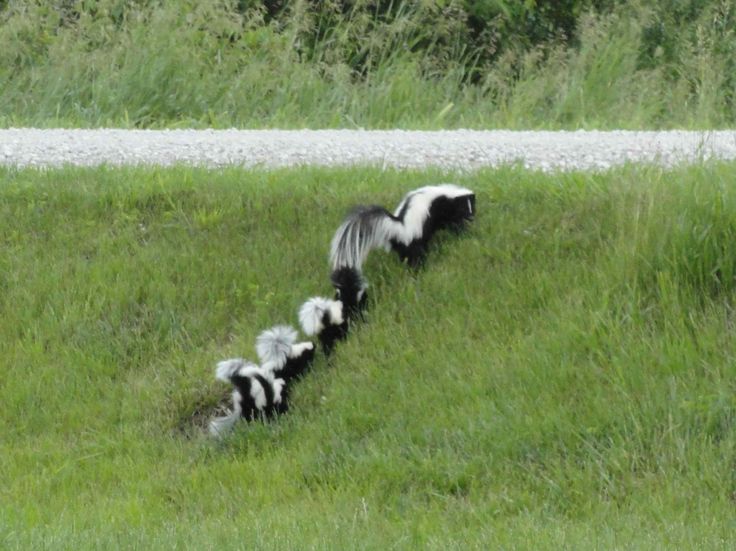February 15th, 2017
BURLINGTON, ON
There have been ten case of raccoon strain rabies in the Region.
The Halton Region Health Department received test results from the Canadian Food Inspection Agency on February 13 confirming a case of raccoon strain rabies in a skunk found in the City of Burlington. Residents are reminding to avoid all contact with raccoons, skunks and other wild animals.

Alive they are cute – dead they could be the death of you. They can be pretty stinky as well. Just leave them alone.
Rabies is a viral disease that causes severe damage to the brain and spinal cord, and if untreated before symptoms appear will lead to death. The virus is spread through the saliva of an infected animal, usually entering through a bite or scratch.
“Anyone who comes in physical contact with a raccoon or other wild animal should see a physician immediately and contact the Health Department by dialing 311,” said Dr. Daniela Kempkens, Acting Medical Officer of Health for Halton Region. “Halton Region, as well as neighbouring communities, are experiencing a higher than average number of rabies cases and we want residents to be aware of rabies and know how to protect themselves from wild and stray animals.“
After someone is exposed to rabies, timely use of the rabies vaccine can prevent the rabies illness. While the rabies vaccine is extremely effective if it is administered before any symptoms occur, there are a number of things you can do to protect your family and pets from the threat of rabies:
• Seek medical attention immediately if you come in contact with a raccoon, skunk or other potentially rabid animals.
• Report all animal bites or scratches to the Halton Region Health Department.
• Warn your children to stay away from any wild, stray or aggressive animals.
• Do not touch dead or sick animals.
• Do not feed or keep wild animals as pets.
• Make sure your pet’s rabies vaccinations are up to date.
• Keep your pet on a leash when off your property.
• Any pet that has come in contact with a raccoon or other wild animal should be seen by a veterinarian.




















I just love the contradictory messaging that comes out of the Region. On one hand they state “Do not feed or keep wild animals…”. On page 18 of the Halton Region Guide & Waste Collection Calendar it states “Place waste out early in the morning”, but in the next line it says it’s o.k. to put it out “…or no earlier than 5 p.m. the evening before”. Huh?
Note to Region: 1) people are not consciously feeding the little critters. The little blighters have figured out how to feed themselves thanks very much; 2) raccoons are very, very smart, and know how to get into green bins and garbage cans. They have great dexterity; 3) streets in my neighbourhood are littered with garbage every morning. Guess who did it?? (Answer: the ones carrying and spreading rabies).
I pointed out this contradictory messaging to the Mayor and Council back in September 2015 in connection with the coyote issue. Eighteen months later they still can’t connect the dots! Unbelievable!!!
Here’s what it should have stated clearly and unambiguously on page 18: DO NOT PUT GREEN BINS OUT FOR PICK-UP BEFORE 7:00 A.M.
And Hans’ question is the same one I would like answered too!
Could this spread to the ever-growing coyote population?